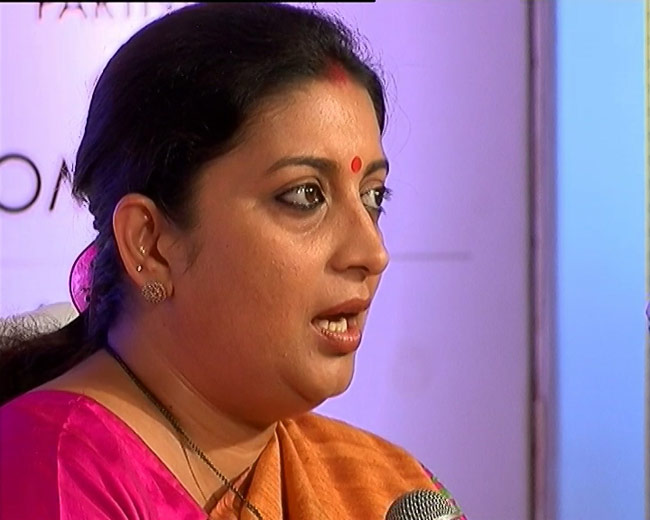There were a 39-point to-do list for primary education was identified aand monitored closely by the Prime Minister’s Office (PMO). This list was reviewed by the Prime Minister Narendra Modi himself. And it wasn’t just non-delivery or slow movement on the PMO to-do list for higher education that may have cost Smriti Irani her job, the school education sector was being just as closely scrutinised by the PMO, reported Anubhuti Vishnoi in Times of India.
For each of the point, actionable targets and specific timelines were given with deadlines ranging from June 2016 up to financial year 2017.
According to the timeline decided at the review meeting taken by the PM, nine actionable points were identified to improve learning outcomes at elementary and secondary education levels.
As per these, Human Resource Development ministry was asked to frame minimum grade wise learning goals from Classes 1 to 8 and put it on the notice board of all schools by June 2016.
By July, all schools were to identify grade wise weak students for remedial classes and organised remedial instruction.
By September, a decision on RTE’s no detention clause was to be taken and by financial year 2017, it was expected that national assessment surveys would be made into an annual feature, grading of 100% government funded and aided schools would be done, and the Continuous and Comprehensive Evaluation (CCE) of all students in government and aided schools was planned for implementation.
Eight-target points were outlined for teacher and headmaster performance. By September 2016, student evaluation of teacher performance in government and aided schools was expected to be put in place.
Considerable PMO focus is on in service training, teacher assessment, technology enabled remedial training for untrained teachers and even the plan finalization for a teacher training university with 4 year integrated course by December 2016.
To address issue of teacher vacancies and requirements, a five point agenda was identified with timelines for biometric and GPS based attendance system by December 2016, Aadhar card for all teachers by March 2017 and mandating transfers of teachers who have spent 15 years in urban area to rural areas by January 2017.
The eight action points for vocationalisation of school education called for a pilot student skill aptitude test right at elementary level in 4-5 states by July 2016, roll out of courses on soft skills like English training, grooming and computers at secondary level by January 2017, 800 identified skills based courses are to be adapted into school curriculum by the financial year 2017.
A three-point approach to improve access include expanding secondary schools in educationally backward blocks by FY 2017-18, guidelines for rationalizing smalls schools across states by October 2016 and standardisation of all data definitions and data collection systems by June 2016.
The five-action steps for higher education identified in the PM review were to expand accreditation of higher education institutes, develop guidelines to allow internationally reputed institutions to accredit higher education institutions, expand the knowledge network connectivity to all universities, finalise regulations for the 20 world class institutes and recommendations for improving AICTE and UGC regulatory frameworks.
HRD ministry and PMO had run into differences on most of these.
Sourced from Agencies, Featured Image Courtesy: indiatoday.intoday.in

























